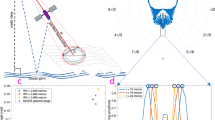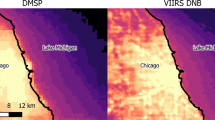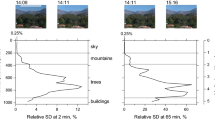Abstract
CLOUDS may disappear by evaporation of the droplets, a purely physical effect, but they may also vanish to the eye, though in fact they remain. It is generally accepted that the eye can distinguish between brightnesses down to the limit of 2 per cent difference, which may be termed the discrimination factor. The best papers on this factor and its variation with intensity are those of Nutting1 and Hecht2. In average daylight for good eyes, the factor may be as low as 1 per cent, increasing for very bright light to about 6 per cent, and for much-reduced illumination rising steeply to more than 60 per cent; but the value 2 per cent holds approximately over a wide range of daylight.
This is a preview of subscription content, access via your institution
Access options
Subscribe to this journal
Receive 51 print issues and online access
$199.00 per year
only $3.90 per issue
Buy this article
- Purchase on Springer Link
- Instant access to full article PDF
Prices may be subject to local taxes which are calculated during checkout
Similar content being viewed by others
References
Nutting, P. G., Trans. Illum. Eng. Soc., N.Y., 11, 939 (1916).
Hecht, S., J. Gen. Physiol., 11, 255 (1928).
Hewson, E. W., Quart. J. Roy. Met. Soc., 69, 47 (1943).
Author information
Authors and Affiliations
Rights and permissions
About this article
Cite this article
ATKINS, W. Apparent Clearing of the Sky at Dusk. Nature 155, 110–111 (1945). https://doi.org/10.1038/155110b0
Issue Date:
DOI: https://doi.org/10.1038/155110b0
Comments
By submitting a comment you agree to abide by our Terms and Community Guidelines. If you find something abusive or that does not comply with our terms or guidelines please flag it as inappropriate.



